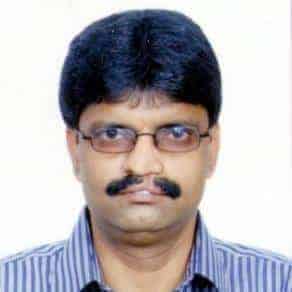
We were seated around the dastarkhwan, a tablecloth which is spread on the floor, awaiting the muezzin’s call for the maghrib prayer which also announces the breaking of first day’s fasting this Ramzan. It was a modest spread: dates, bhajiya, pakoda, watermelon, bananas, chana-chuda and sherbet. There were a few minutes left for breaking the dawn to dusk fast when I remembered Sanjay, the watchman at our building. I asked my wife to send a plate of Iftar fare to him too. A bit hesitant initially, but he accepted it. Now every evening he gets his Iftar fare.
Seeing this gesture, my little daughter Zareen bewilderingly asked me:”Daddy, but he doesn’t fast. Why do we give him Iftar?”
“Beta, this is a special food and we must share it with someone whom we know and he doesn’t have it,” I tried to explain to the curious child.
Sanjay has been with our building for a couple of years. A simple, gentle boy in mid-20s, he is committed to his work. I have not heard anyone in our society building complaining against him. In spare time he washes members’ cars to supplement his monthly salary. Like most watchmen in the city, he lives alone and cooks his meal, presses the door bells at an appointed time daily to inform the members to fill water in overhead tanks in kitchen and bathroom, and is ready to help whenever it is sought.
Hailing from a village in Allahabad (UP), Sanjay is a graduate in Hindi literature from Allahabad University and came to Mumbai around five years ago. The only earning hand in his family, he has four siblings, wife, two kids and mother to look after (father died a couple of years ago). Seeing nothing coming his way even after clearing B.A exam, he moved to Mumbai and landed up a watchman’s job. If Sanjay is not part of the hundreds and thousands of migrants fleeing towns and cities to escape starvation during the coronavirus-induced lockdown, it is because he has a stable job. He gets his salary, whatever small it may be, in time which is crucial for the honourable survival of him and his family. By working with us, he is like family and we don’t do him any favour if we share our Iftar delicacies with him. Instead of attempting to change the name of Allahabad University, CM Yogi Adityanath should have created jobs for educated youths like Sanjay. Hopefully he will heed his ideal, PM Narendra Modi, and make his state “self-reliant.”
After we sent Sanjay Iftar on the first day of Ramzan, I began thinking; Why did this thought come to me? My train of thoughts took me to my childhood days in my village in Bihar. There was no day in 30 or 29 days of the holy month when my mother didn’t send a plate carrying Iftar to the village mosque. The idea was that, due to grinding poverty, many fasting villagers would reach the mosque and wait for the Iftar time. They didn’t ask for it, but would get to eat some nutritious Iftar delicacies sent from a few families which were better off than them. Perhaps that idea of giving inculcated in me quite early compels me to share whatever little I have with the underprivileged.
The other day I mentioned at another forum a story from my childhood. When I was a child, I remember, my mother would put a few coins in my pocket as I accompanied elders to the mosque to offer the Friday namaz with an instruction: give it to the man who comes to seek alms from you. I would do as I was told. It is quite later that I understood why a mother would put some coins in her child’s pocket? It was to inculcate the habit of giving.
Habits inculcated in childhood stay with you for life. The other day I transferred Rs 5000 in the bank account of a friend who did a work for me. I know he doesn’t have a regular job and his self-respect will never allow him to open his mouth. He sent me a message:”Yeh kutchch ziyada nahi hogaya kya(isn’t it a bit more than what I deserved)? He didn’t expect this much remuneration which is anyway not so big for the work he did for me. I said it is Ramzan and Eid will follow soon, so he should keep it.
I liked it when general secretary of AMU Alumni Association in Mumbai and my friend Raees Ahmed announced the other day a help of Rs 25000 to each Alig (alumnus of AMU) who approached him. He also promised that the identity of the beneficiaries would be kept secret and only he, the beneficiaries and Allah would remain its witness. I am told around 20 Aligs approached him and received the much-needed help. This is apart from the help with ration and cash that he has provided to many needy in his native Badayun (UP).
You don’t need to be rich to give. Once I wrote to a Mumbai-based philanthropist friend: “I am privileged to know you because you share your wealth with the have-nots.” He replied:”I give because God gives me. I would have not given if God didn’t give me.”
A seemingly bland statement, but think the catholicity in the statement. Out of 10 richest Indians, five live in Mumbai. And still we have to witness hundreds of hungry, dispossessed, dejected labourers leaving the city for their homes in the hot sun on foot.
If the whole universe is bound by an invisible kinship, every privileged individual, irrespective of caste and creed, must share the pains that the poor endure during this pandemic and post-pandemic.
Which is why it gives me some solace when I see Sanjay a little happier in these difficult times.
Mohammed Wajihuddin, a senior journalist, is associated with The Times of India, Mumbai. This piece has been picked up from his blog.

